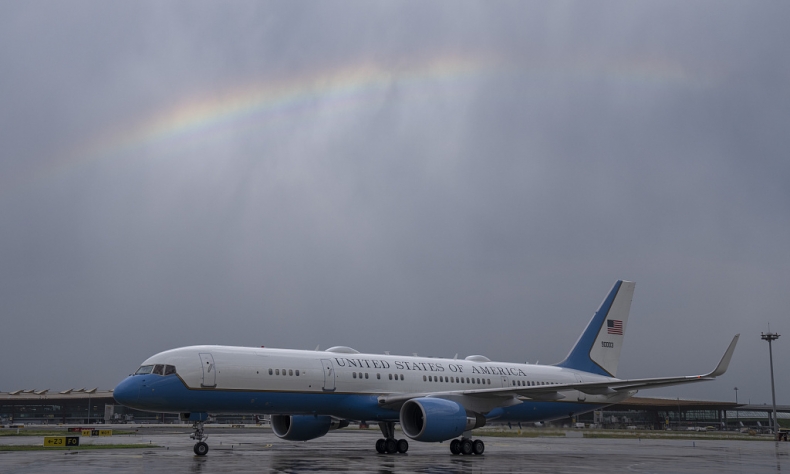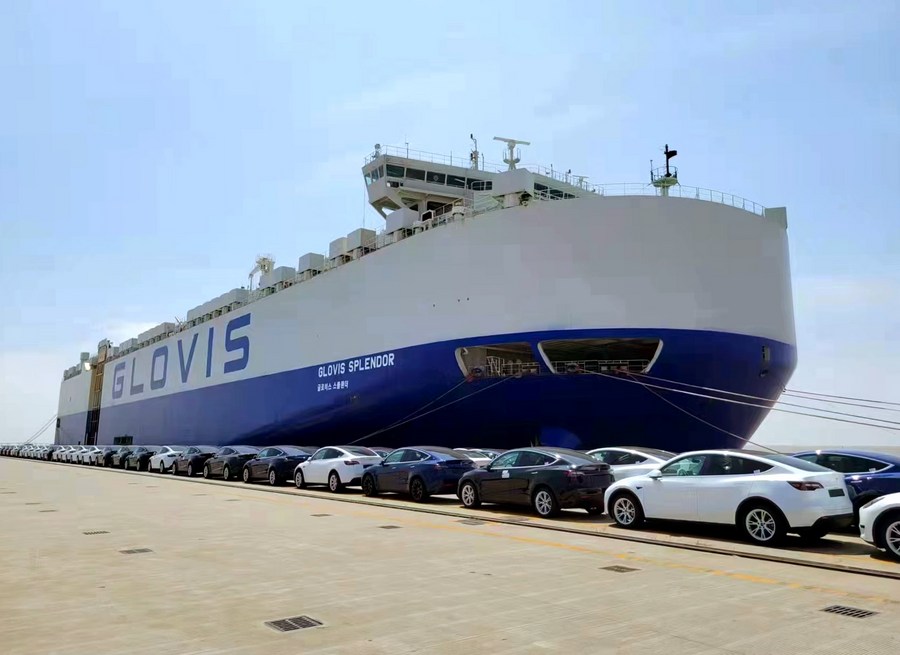Over the Rainbow

Both China and the U.S. seem to hope this particular arc bodes well for the relationship between the two countries to really turn the tide this time around.
When U.S. Treasury Secretary Janet Yellen arrived in Beijing on the afternoon of July 6, it was pouring rain. As she disembarked from the plane, the rain subsided and a rainbow appeared on the horizon. This detail was captured by both American and Chinese netizens and made the social media rounds in the days that followed. In the cultures of both countries, the rainbow is seen as a symbol of hope, as well as of the harmonious coexistence of different thoughts and values.
Following U.S. Secretary of State Antony Blinken’s trip to China on June 18, high-level contact between China and the U.S. occurred twice within 20 days, a positive signal of warming bilateral relations in the eyes of the international public. During her four-day trip, Yellen had no fewer than 10 hours’ worth of talks with four senior Chinese economic policymakers, including Premier Li Qiang and Vice Premier He Lifeng.
A reported opponent of the “decoupling” of the Chinese and U.S. economies, with “decoupling” here referring to the process of diverging into two tech ecosystems with an increasing degree of separation, U.S. media generally consider Yellen a “dove,” a symbol of peace, vis-à-vis China in the Joe Biden administration; in China, she is largely seen as representing the rational voice in American politics. Seeking “healthy economic competition” and “cooperation on climate change and other global challenges” between China and the U.S. are the views Yellen voiced at almost every public opportunity during her recent Beijing trip. “We believe the world is big enough for our two countries to prosper,” Yellen said at a press conference right before leaving China on July 9.

In the context of global economic recession, whether it is the U.S., with its high inflation rate, or China, with its lower-than-expected economic growth, both seem to need the other’s support right now. According to data summarized by The New York Times on July 7, despite continued tensions in bilateral relations, American imports of goods and services from China hit a record $563.6 billion in 2022, and exports to China supported nearly 1.1 million jobs in the U.S. in 2021. At the same time, China is also the largest source of international sales for large U.S. firms, more than their revenue from the next three countries—Japan, the UK and Germany—combined. Last, but not least, China is one of America’s largest lenders and owned $870 billion of U.S. debt as of late 2022.
But the predicament of the competition between China and the U.S. is that both sides seem to be confident that the other side will collapse before they will and so, at this stage, the game is to “never surrender,” believing that the side that can hold out the longest will get to occupy a dominant position in future negotiations and cooperation.
In fact, whether it was during the meeting between the Chinese and American heads of state in the lead-up to the Group of 20 Summit in Bali, Indonesia last year, or during Blinken’s and Yellen’s China visits this year, China has presented its fair share of sincerity. Whether the U.S. can implement the high-level consensus reached by both sides is now key to the future development of Sino-American relations.
The trust deficit between the two countries is difficult to completely eliminate with a single visit to China, but it is of great significance for both countries to maintain dialogue, communication and active interaction. “After a round of wind and rain, we will definitely see more rainbows,” Chinese Premier Li Qiang said upon Yellen’s arrival in the Chinese capital, once again referring to the rainbow that had appeared as she set foot on Chinese soil. Both China and the U.S. seem to hope this particular arc bodes well for the relationship between the two countries to really turn the tide this time around.
 Facebook
Facebook
 Twitter
Twitter
 Linkedin
Linkedin
 Google +
Google +










